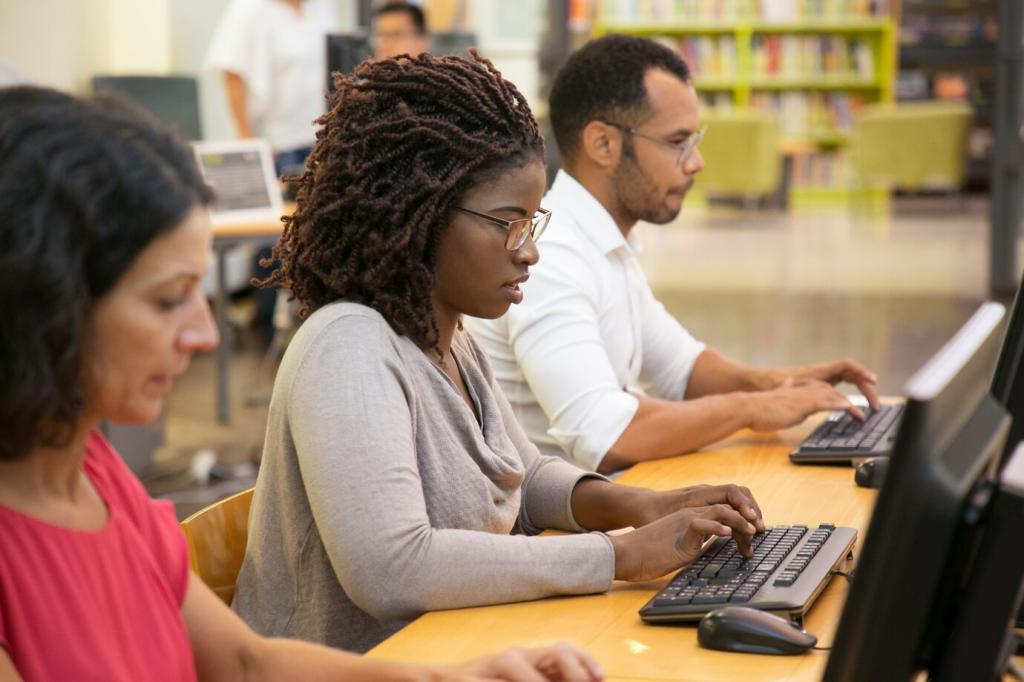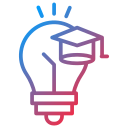Advancements in Open Source Programming Education
Open source programming education has experienced a remarkable evolution in recent years, fundamentally transforming the way learners acquire coding skills and develop software expertise. Enabled by community-driven collaboration, a plethora of freely accessible tools, platforms, and curricula have galvanized participation and innovation. This page explores the latest advancements, shedding light on how open source educational initiatives are breaking down barriers, fostering inclusivity, and cultivating a new generation of skilled programmers around the world.

Evolving Curricula and Learning Resources
Community-Driven Curriculum Development
Open source has revolutionized curriculum creation, shifting control from academic gatekeepers to vibrant global communities. Expert practitioners, educators, and learners now collaborate openly to design, update, and refine educational content. This approach accelerates the integration of emerging languages, frameworks, and best practices, ensuring learners always interact with contemporary material. Collaborative review processes promote content accuracy and pedagogical quality. Community feedback loops enable swift iteration, allowing courses to stay relevant to industry trends and learner preferences. The inherently transparent and participatory nature of this model creates a more inclusive educational space, providing opportunities for individuals from diverse backgrounds to contribute to, and benefit from, continually evolving learning resources.
Interactive Coding Platforms
Advancements in online, browser-based coding environments have made hands-on experience more approachable than ever. These platforms integrate interactive coding exercises with immediate feedback, allowing learners to build proficiency as they progress through syntheses of theory and real-world practice. Open source tools like code editors, debuggers, and sandbox environments reduce technical barriers, providing consistent access regardless of local hardware constraints. As a result, students of all skill levels can experiment, test hypotheses, and learn by doing—a process that reinforces theoretical knowledge through application. Such interactivity not only increases engagement but also enables self-paced learning and rapid skill acquisition, empowering a more diverse array of aspiring developers.
Curated Resource Aggregation
Navigating the ever-expanding sea of programming knowledge has become much simpler thanks to open source aggregation efforts. Projects now collect, organize, and curate vast libraries of documentation, tutorials, video lectures, and coding challenges. This curation enables learners to personalize their learning journeys and reliably access high-quality material. Collections are frequently indexed, annotated, and mapped to key competencies or real-world roles, streamlining the pathway from curiosity to mastery. Openly maintained directories benefit from continuous updates and meticulous user reviews, helping to prioritize resources based on relevance, difficulty, and clarity—making the learning process more efficient and transparent.
Expanding Access and Global Inclusion
Multilingual and Localized Content
Open source programming education has made significant strides in linguistic accessibility, ensuring that knowledge is not limited by English proficiency. Volunteer-driven translation teams and community localization projects bring coding tutorials, documentation, and user interfaces to learners in dozens of languages. As a result, programming becomes approachable in native tongues, which fosters higher comprehension and engagement. These initiatives frequently go beyond mere translation, adapting examples and analogies to cultural contexts that resonate with local learners. By removing linguistic barriers, open source materials empower students from underserved regions, equipping them with the confidence and skills to join the global developer community.
Outreach to Underrepresented Communities
Targeted outreach and partnership programs extend the reach of programming education to those traditionally left behind by conventional curricula. Many open source organizations collaborate with local schools, nonprofits, and grassroots groups to distribute devices, host workshops, and mentor individuals from underrepresented backgrounds—including women, rural youth, and people with disabilities. These initiatives tailor educational content to address specific community needs, create supportive peer networks, and offer guidance for non-traditional learners. The result is a more equitable learning field and a broader talent pool, driving forward the ideals of diversity and inclusion across the tech sector.
Mobile-First Learning Solutions
With many learners around the world accessing the internet primarily through smartphones, open source educational efforts have prioritized mobile-friendly solutions. Mobile-centric platforms deliver compact, offline-accessible learning modules optimized for small screens, intermittent connectivity, and limited bandwidth. App-based code playgrounds, gamified tutorial apps, and modular podcast courses are all products of this mobile-first philosophy. Such innovations make programming instruction available anytime, anywhere, regardless of geography or socioeconomic circumstances. By prioritizing accessibility via mobile, open source education providers are ensuring that the opportunity to learn to code reaches even the most remote corners of the globe.
Cultivating Collaborative Learning Communities
Open source learning communities have established a plethora of channels—chat rooms, discussion boards, and live help desks—dedicated to real-time problem solving and support. Learners can seek immediate guidance on coding bugs, conceptual hurdles, or career questions, receiving input from both peers and more experienced contributors. These interactions often spark deeper discussions, clarifications, and resource sharing. The immediacy of support reduces frustration and drop-off rates while building confidence and camaraderie among learners. Such networks scale organically, ensuring that as new members join, the pool of expertise and assistance only grows richer for everyone involved.

Advancements in Project-Based Learning
Learners are encouraged to engage directly with active open source projects, contributing code, documentation, or testing in a collaborative environment. These experiences simulate professional development, offering exposure to real codebases, established workflows, and teamwork dynamics. Early contributions might be small—fixing bugs, writing documentation, or implementing minor features—but over time, learners take on increasingly complex tasks, guided by seasoned maintainers. This immersive exposure both grounds theoretical knowledge and cultivates job-ready skills. Moreover, the sense of tangible impact and association with a larger mission motivates deeper learning and sustained engagement.

Integrating Emerging Technologies

Machine Learning and AI in Education
The integration of machine learning and AI has transformed open source programming education by personalizing the learning experience and automating key aspects of instruction. Adaptive platforms now leverage data analytics to recommend tailored content, identify skill gaps, and deliver customized practice exercises. AI-driven tutors offer instant feedback and clarification on coding problems, while automated grading reduces the manual burden on instructors. This level of individualization ensures that learners progress efficiently, challenging them appropriately and providing support where needed. By demystifying complex technologies within an open environment, the community also democratizes access to state-of-the-art skills previously confined to specialized research labs or industry giants.

Cloud-Based Development Environments
Open source initiatives have harnessed the power of cloud computing to deliver scalable, uniform development environments accessible from any device. Learners can code, test, and deploy applications in browser-based sandboxes that mirror real-world infrastructures—a boon for those without access to powerful local hardware. Cloud-based tools streamline the onboarding process, eliminate compatibility headaches, and foster collaborative development among geographically dispersed teams. This flexibility enables educators to focus on content delivery and mentorship, rather than infrastructure maintenance, while learners benefit from exposure to industry-standard tools and workflows.

Blockchain and Decentralized Learning Tools
The rise of blockchain has opened new frontiers for open source programmers and educators. Decentralized platforms for credentialing, resource sharing, and peer assessment enable learners to own and share verifiable records of achievement across institutions and borders. Some initiatives use smart contracts to facilitate decentralized governance or automate the distribution of rewards for contributors to educational materials. By leveraging trustless ledgers and community consensus, these tools promote transparency, reduce fraud, and reward meaningful participation. The application of blockchain principles to learning aligns naturally with the ethos of openness, collaboration, and learner empowerment central to the open source movement.
Strengthening Assessment and Credentialing

Open source learning environments blend peer-reviewed evaluations with automated grading systems to provide holistic, scalable feedback. Automated assessments deliver instant, objective analysis of coding solutions, flagging bugs, inefficiencies, or security vulnerabilities. This enables learners to iterate quickly and improve on the fly. Peer-based assessments complement these systems, allowing for deeper exploration of code quality, creativity, and problem-solving strategies. Students develop critical thinking as they review others’ work, internalizing best practices and diverse approaches. This combination not only supports individual growth but also fosters a culture of mutual respect and high standards within the learning community.

